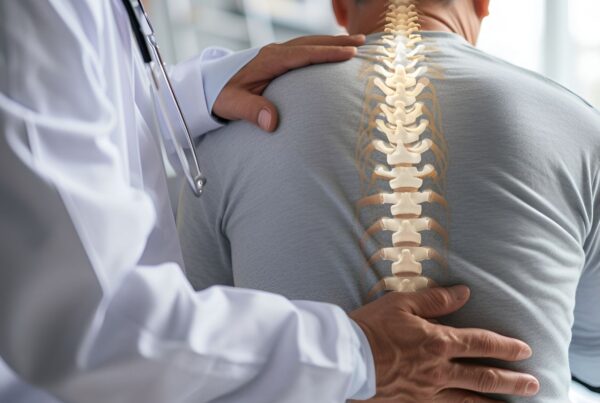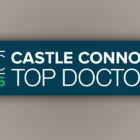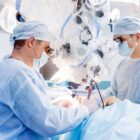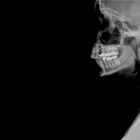Anterior Cervical Discectomy and Fusion (ACDF) surgery is a pivotal procedure for individuals grappling with specific spinal conditions. This surgery, focusing on the cervical spine, is not just a medical intervention but a gateway to enhanced quality of life for many. Let’s delve into the various facets of ACDF surgery, including its impact on life expectancy, the procedure itself, recovery, and more.
The ACDF Procedure: A Glimpse into the Surgery
ACDF surgery, short for Anterior Cervical Discectomy and Fusion, is a procedure done from the front of the neck to tackle issues in the cervical spine, which is the part of your spine in your neck. When a disc in this area gets damaged—like being worn out or slipping out of place—it can push against the nerves or spinal cord, causing pain or numbness. During the surgery, doctors remove this troublesome disc to ease the pressure on the nerves or spinal cord, much like you’d remove something that’s pinching a garden hose to restore water flow.
After the disc is taken out, there’s a space that needs to be filled to keep the spine stable. That’s where the fusion part comes in. The surgeon puts in a bone graft, or a substitute, in the gap, which helps the bones around it to grow together over time, kind of like healing a broken bone. This process helps keep the spine aligned and stable, reducing pain and improving function, making it a crucial step for those dealing with certain neck issues.
ACDF Surgery Recovery
Recovery is a critical phase post-ACDF surgery. Initially, patients might experience some discomfort, including difficulty swallowing and neck stiffness. However, these symptoms gradually subside. The recovery timeline varies, but many patients resume their normal activities within 4 to 6 weeks, with full recovery taking several months. Adherence to prescribed rehabilitation exercises and avoidance of strenuous activities are crucial during this period.
ACDF Neck and Spine Surgery: Addressing the Core
ACDF neck surgery specifically targets conditions affecting the cervical spine, addressing issues like herniated disc or nerve root pain. By focusing on the anterior part of the cervical spine, the surgery minimizes the risk of damaging the spinal cord or surrounding structures.
It's time to get back
to doing what you love.
Will I Scar From ACDF Surgery?
A scar from ACDF surgery is an inevitable outcome, given the procedure’s invasive nature. Located at the front of the neck, this scar is a tangible reminder of the patient’s journey towards a pain-free life. An ACDF surgery scar’s appearance diminishes over time, its presence is a testament to the individual’s resilience and the steps taken to improve their well-being.
Life Expectancy After ACDF Surgery
One of the foremost concerns for anyone considering ACDF surgery is its impact on life expectancy. Research suggests that while ACDF surgery is primarily aimed at alleviating pain and stabilizing the cervical spine, it does not have a statistically significant impact on life expectancy. However, it significantly enhances the quality of life by addressing chronic neck pain and improving mobility.
Permanent Restrictions After ACDF Surgery
Post-ACDF, patients might face certain permanent restrictions to protect the cervical fusion. High-impact activities or heavy lifting might be off-limits to prevent stress on the fused segment. However, these restrictions vary based on individual recovery and the surgeon’s advice.
Enhancing Understanding: Key Terms Explained
- Anterior Cervical Discectomy: The removal of a damaged disc from the cervical spine through an anterior (front) approach to alleviate pressure on the cervical nerves or spinal cord.
- Fusion ACDF: A fusion process following the discectomy, aimed at stabilizing the cervical spine and promoting bone growth between cervical vertebrae.
- Cervical Spine: The upper part of the spine, consisting of seven vertebrae, which is crucial for neck movement and stability.
- Damaged Disc: Refers to a disc in the spine that has deteriorated or herniated, often leading to pain and nerve compression.
- Disc Space: The gap between vertebrae in the spine, where the disc resides, providing cushioning and enabling movement.
- Nerve Root: The initial segment of a nerve as it branches off from the spinal cord, often a site of compression or irritation in spinal conditions.
- Herniated Disc: A condition where the disc’s inner gel-like core protrudes through its outer ring, causing pain and potentially compressing spinal nerves.
Why Choose Neurosurgeons of New Jersey for your ACDF Surgery?
Neurosurgeons of New Jersey has been voted the #1 Surgical Practice in New Jersey for Neurosurgery, offering exceptional care across 11 convenient locations throughout the state. The practice is distinguished not only by our top-ranking but also by the top-notch education and numerous prestigious awards held by our doctors. We accept and work with a broad range of health insurance networks including Aetna, Horizon Blue Cross Blue Shield, Oxford/United Healthcare, Cigna, Personal Injury Protection (PIP)/No-Fault for New Jersey Motor Vehicle Accidents, the Empire Plan (NYSHIP), Medicare, NJ Medicaid, and Workers’ Compensation. Even if your insurance is not listed, you may still be eligible for significant coverage, ensuring that high-quality neurosurgical care is accessible to a wide range of patients.
Our Livingston Spine Team are experts in ACDF surgeries, using minimally invasive methods to minimize disturbances to the surrounding tissues. This streamlined surgical method reduces recovery time, decreases risk of complication, and often results in less postoperative pain.
Conclusion
ACDF spine surgery represents a significant advancement in treating cervical spine conditions, offering a beacon of hope for those suffering from debilitating neck pain and spinal issues. By understanding the procedure, recovery, and long-term care, patients can embark on this journey with confidence, looking forward to a future with reduced pain and enhanced mobility.
If you’re considering ACDF surgery or want to learn more about it, it’s crucial to consult with a healthcare provider who can offer personalized advice and guide you through the decision-making process. Remember, your journey to a better quality of life is a partnership between you, your healthcare team, and your support system, all working together towards achieving your health and wellness goals.
Dr. Seth Grossman, MD, MS, FAAOS
Dr. Paul R. Gigante, MD, FAANS
Dr. Luigi Bassani, MD, FAANS
Dr. James K. Liu, MD, FACS, FAANS

About Livingston
Our team of board certified physicians, located in Livingston, New Jersey, are dedicated to bringing you the latest developments and treatment options for spinal surgery. We strive to produce the most clarified & clear content to help you make informed decisions on your medical journey. The road to feeling like your true self should not feel lonely- Let us help you. Please call us to schedule a consultation and speak to one of our team members.
Recent Posts:






